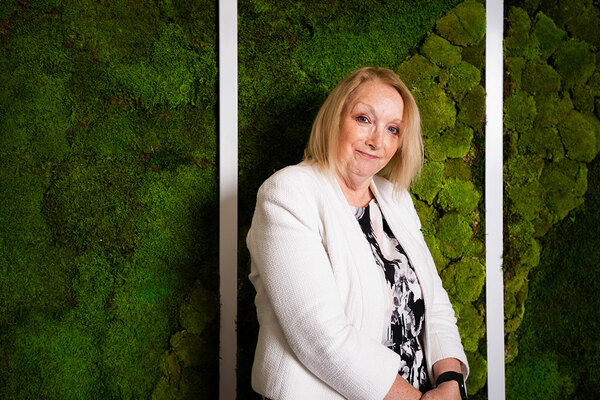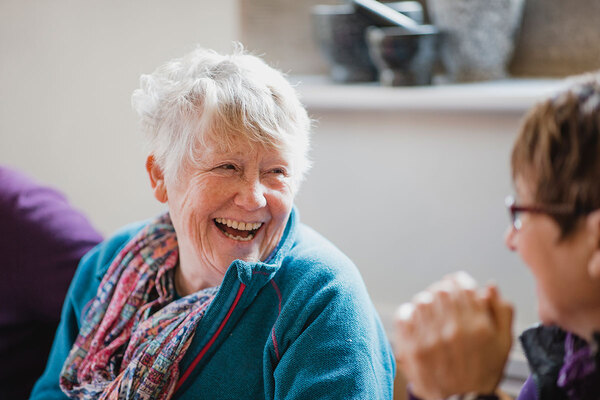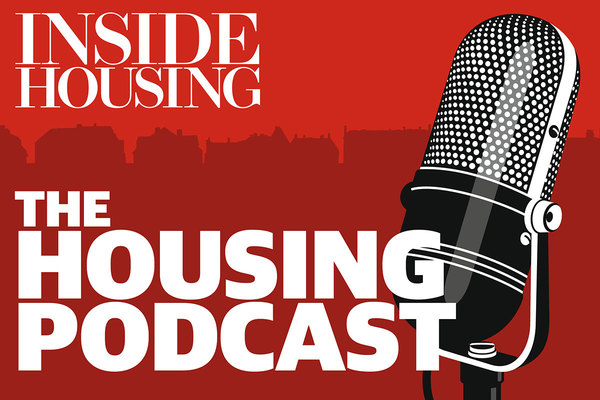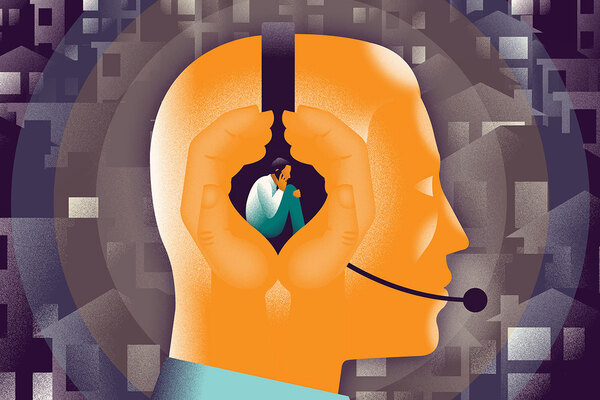You are viewing 1 of your 1 free articles
 Ben Collins
Ben CollinsThe pandemic has hit the mental health of tenants and staff. The government and private sector must work on a solution
The coronavirus pandemic has disrupted critical mental health services. The housing sector provides support, but it cannot address these mental health issues on its own, argues Ben Collins
Now that we are beginning the see the roll-out of multiple vaccines, we can begin to have hope that the end of the pandemic is in sight – although still some way off.
Vaccinations are one part of the necessary changes to help us move as a society to the different normal that awaits us after the end of the pandemic.
In a previous IH50 column I mentioned the physical changes we want to see in housing. These included more remote working and learning space inside homes.
There is also a need to focus on green space outside homes, to help address the climate crisis and for the mental and physical benefits that access to nature provides to us all.
While these are some of the physical changes, alongside greater use of cycle lanes for example, there are also unseen challenges we must address.
Before the pandemic there were already significant mental health challenges, including loneliness being faced by many people, across all parts of society.
Living with the pandemic and coping with the lockdowns, which are necessary to limit the spread of the deadly coronavirus, also contribute to increasing mental health challenges which we need to overcome.
A recent report by the Mental Health Foundation stated that up to 25% of young adults aged between 18 and 24 were experiencing loneliness. The figures for 16 to 24-years-olds in another survey showed that 50% had experienced ‘lockdown loneliness’.
A recent World Health Organisation survey found that COVID-19 is causing major disruption to critical mental health services across most countries. This impact is being felt for services to vulnerable individuals, the young and older people, as well as for women requiring antenatal and postnatal services.
Housing associations cannot address these mental health issues in isolation. Our sector has always been about more than bricks and mortar. We provide both welfare and wider financial advice, and are focused on providing green space where possible.
However, while we can play our part, we cannot address these mental health issues on our own.
“To come through this pandemic we have to work together across government, private and third sectors. Dealing with coronavirus has further reinforced that health and housing outcomes are interlinked”
A previous report by Ulster University showed that 30% of Northern Ireland’s population had mental health problems and that half of these were due to The Troubles. It is welcome that the Northern Ireland Executive has appointed a mental health champion. The Department of Health has put in place a mental health action plan with a particular focus on a response to COVID-19.
We are already seeing healthcare workers dealing with the pandemic who are suffering from post-traumatic stress disorder. As there is a significant number of people working in housing who are also on the frontline, we can imagine that there will be similar impacts for them.
The UK government’s decision to provide a temporary increase in Universal Credit payments is welcome, but it does not provide a permanent solution. People need to be able to live in good-quality homes, facilitated by the welfare system, to provide mental and physical well-being.
A ‘green care’ approach, where people have access to nature, has been proven to help reduce levels of anxiety, stress and depression. Not only is this better for the individual, it will also reduce pressure for health services.
To come through this pandemic we have to work together across government, private and third sectors. Dealing with coronavirus has further reinforced that health and housing outcomes are interlinked.
In many ways, our work to build the recovery from this pandemic will only begin once there has been a full vaccination roll-out across the population.
While we cannot be certain of when the pandemic will be over, we can be assured that housing associations will continue to help embed resilience in communities and work with others to help us move to the different normal which awaits us.
Ben Collins, chief executive, Northern Ireland Federation of Housing Associations












